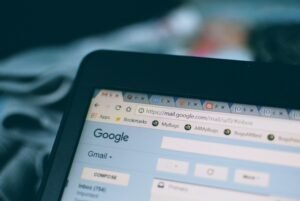Airtel said its plan will come bundled with unlimited landline calls and some content freebies, such as three months’ Netflix subscription, one year Amazon Prime membership.
The bitter rivalry in mobile services between Reliance Jio and Bharti Airtel, now in its third year, has spilled over to the home broadband segment, as the two companies battle for leadership in revenue and market share.
Airtel on Wednesday launched its ultra-high-speed Airtel Xstream Fibre broadband service, matching the price of JioFiber’s top-end plan launched a week ago. For ₹3,999 a month, top JioFiber users will get 2,500GB of data at a speed of 1Gbps, while Xstream Fibre users will get 3,333GB at the same speed.
Airtel said this plan will come bundled with unlimited landline calls and some content freebies, such as three months’ Netflix subscription, one year Amazon Prime membership, and access to content from ZEE5 and the Airtel Xstream app.

Airtel Xstream Fiber will initially be available in Delhi, Gurugram, Faridabad, Noida, Ghaziabad, Mumbai, Pune, Bengaluru, Hyderabad, Chennai, Chandigarh, Kolkata, Indore, Jaipur, and Ahmedabad. It will be rolled out in more markets in the next few months. The company plans to focus on the top 100 cities for home broadband.
Jio, on the other hand, plans to reach 1,600 cities in the country through JioFiber. Its basic monthly plan of ₹699 will offer consumers 100GB of data, with an additional 50GB of promotional data, at 100Mbps speed, free voice calls and video conferencing through a compatible TV, and high-speed gaming and content sharing across the home network.
“Home broadband is a very different space compared to wireless broadband as the entry barriers are high and it is expensive and time-consuming to deploy fiber. While Airtel and Jio are the big players, a chunk of the penetration in this market is driven by local cable operators who double up as broadband providers. It will take a fairly long time to reach the same penetration level as wireless broadband,” Mahesh Uppal, director at communications consulting firm ComFirst India said.
Airtel’s basic plan for ₹799 offers 100GB internet at up to 40Mbps speed.
Broadband operators, who had so far sold internet connections via cables up to homes, are now eyeing a bigger slice of the pie by morphing into integrated content and services platforms, as consumers demand more value for their money.
Earlier this month, Airtel had launched an Android-based over-the-top (OTT) offering, Airtel Xstream, priced at ₹3,999, which also provides access to Airtel’s movie roster, OTT library, and Airtel’s Wynk Music’s catalog.
ACT Fibernet, the country’s second-largest private home broadband player, had in August launched the ‘ACT Stream TV 4K’ service across top metros in August to offer consumers movies, TV shows, sports, music videos, and live TV from existing on-demand streaming providers and TV channels. Customers can pay for their subscription directly as part of the ACT Fibernet monthly bill.
These operators believe that this can help them increase customer stickiness through offerings such as gaming and smart home experiences. The home broadband operators could provide these through partnerships and by ultimately becoming an integrated platform to meet the digital needs of consumers in this underpenetrated market.
As of June-end, India had only 18.42 million wired broadband users against 575.63 million wireless broadband subscribers, according to data from the Telecom Regulatory Authority of India. The largest private operator in the wired broadband market is Bharti Airtel, which has 2.40 million users, followed by ACT with 1.45 million users. Jio is yet to declare its subscriber numbers for wired broadband.




